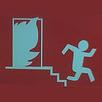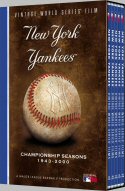|
Larry Mahnken and SG's | ||
|
| Replacement Level Yankees Weblog |

|
|
"Hey, it's free!" | ||
|
Larry Mahnken and SG's | ||
|
| Replacement Level Yankees Weblog |

|
|
"Hey, it's free!" | ||
|
Featuring: Larry Mahnken SG sjohnny TVerik Sean McNally Fabian McNally John Brattain  
The New York Yankees Vintage World Series Films DVD Set, available from A&E. Yankees Tickets World Series Tickets MLB All Star Tickets NFL Tickets Purchase your Onlineseats.com is your #1 source for MLB tickets, NY Mets Tickets, Cubs Tickets, Yankees Tickets, Red Sox Tickets, Giants Tickets, Astros Tickets, Angels Tickets, Phillies Tickets.
Buy all your MLB Tickets,
Laser Keyboard Brazil Flowers TickCo.com for premium New York Yankees Tickets Boston Red Sox Tickets Chicago white Sox Tickets A's Tickets Angels Tickets New York Mets Tickets St Louis Cardinals Tickets Cubs Tickets Dodgers Tickets Worldticketshop Football Tickets Concert Tickets Tennis Tickets Rugby Tickets Formula 1 Tickets "I'm not a pessimist, I'm an optimist. Things are really worse than I say they are." - Steve South

04/01/2003 - 04/30/2003 05/01/2003 - 05/31/2003 06/01/2003 - 06/30/2003 07/01/2003 - 07/31/2003 08/01/2003 - 08/31/2003 09/01/2003 - 09/30/2003 10/01/2003 - 10/31/2003 11/01/2003 - 11/30/2003 12/01/2003 - 12/31/2003 01/01/2004 - 01/31/2004 02/01/2004 - 02/29/2004 03/01/2004 - 03/31/2004 04/01/2004 - 04/30/2004 05/01/2004 - 05/31/2004 06/01/2004 - 06/30/2004 07/01/2004 - 07/31/2004 08/01/2004 - 08/31/2004 09/01/2004 - 09/30/2004 10/01/2004 - 10/31/2004 11/01/2004 - 11/30/2004 12/01/2004 - 12/31/2004 01/01/2005 - 01/31/2005 02/01/2005 - 02/28/2005 03/01/2005 - 03/31/2005 04/01/2005 - 04/30/2005 05/01/2005 - 05/31/2005 06/01/2005 - 06/30/2005 07/01/2005 - 07/31/2005 08/01/2005 - 08/31/2005 09/01/2005 - 09/30/2005 10/01/2005 - 10/31/2005 11/01/2005 - 11/30/2005 12/01/2005 - 12/31/2005 01/01/2006 - 01/31/2006 02/01/2006 - 02/28/2006 03/01/2006 - 03/31/2006 04/01/2006 - 04/30/2006 05/01/2006 - 05/31/2006 06/01/2006 - 06/30/2006 07/01/2006 - 07/31/2006 08/01/2006 - 08/31/2006 09/01/2006 - 09/30/2006 10/01/2006 - 10/31/2006 LINKS Yankees Sites and Columnists Nomaas.org General Baseball Sites & Columnists Rotoauthority.com The Book Blog - Playing the Percentages in Baseball(Tango, MGL, Dolphin) Yankees Blogs Almost Perfect Baby Bombers Baseball Mania Bronx Banter Dugout News Eephus Pitch Fire Joe Torre Blog Here Comes Number 27 High and Tight Lohud Yankees Blog No Sense Worrying Soft Hands The Sporting Brews The Stat Boy of the Empire Was Watching Yankees Chick Yankees Fans in Foreign Lands Yanks Blog Look what people have to say about Larry Mahnken's commentary! "Larry, can you be any more of a Yankee apologist?.... Just look past your Yankee myopia and try some objectivity." "Mr. Mahnken is enlightened."
"Wow, Larry. You've produced 25% of the comments on this thread and
said nothing meaningful. That's impressive, even for you."
"After reading all your postings and daily weblog...I believe you have truly become the Phil Pepe of this generation. Now this is not necessarily a good thing."
"you blog sucks, it reeds as it was written by the queer son of mike lupica and roids clemens. i could write a better column by letting a monkey fuk a typewriter. i dont need no 181 million dollar team to write a blog fukkk the spankeees"
"i think his followers have a different sexual preference than most men"
"Boring and predictable."
"Are you the biggest idiot ever?"
"I'm not qualified to write for online media, let alone mainstream
media."
This site is best viewed with a monitor.
|
Disclaimer: If you think this is the official website of the New York Yankees, you're an idiot. Go away. Tuesday, October 31, 2006
Melky's Defense by the Week by SG
One of the things I wanted to do this season in order to better understand how to assess the value players bring defensively was to track defense weekly. My hope was that doing this would allow me to see any patterns or changes in time periods, rather than a single year-end number.
Monday, October 30, 2006
Most Awesome Thing of the Week by Fabian
Phil Hughes has his own website, providing us with further opportunity to worship at his altar.
NY Post: BOMBERS FIELDING SHEFF CALLS by SG
Friday, October 27, 2006
NY Post: Pettitte might be an option by SG
From Joel Sherman:
Thursday, October 26, 2006
NY Daily News: Sheffield warns: I won't deal with sign-and-trade by SG
Wednesday, October 25, 2006
Daisuke Matsuzaka by SG
There's no question that the starting pitching on the Yankees needs some improvement. With an uninspiring crop of US free agents this year led by Barry Zito and Jason Schmidt, one name that has been garnering a lot of interest is that of Daisuke Matsuzaka. Matsuzaka is a 26 year-old right-hander from the Seibu Lions, who was the MVP of the World Baseball Classic this year.
Tuesday, October 24, 2006
Why the Yankees should keep Mike Mussina by SG
Over at Was Watching, Steve Lombardi made the argument about why the Yankees should let Mussina walk. I like Steve and think he runs a great blog, but I disagree with him in this instance.
Monday, October 23, 2006
Yankees.com: Gardner providing a spark in AFL by SG
From Yankees.com, a winter league updated on Brett Gardner and others.
Friday, October 20, 2006
Wrists, Elbows, Backs, and Fasano by SG
Here's a quick look around the state of the Yankees, from yankees.com.
Thursday, October 19, 2006
The Worst Teams Money Can Buy - Revisited by SG
Yesterday I ran through an exercise to look at the worst teams money can buy. My methodolgy raised some questions which are fair, so I thought I would look for a different way to do this. Thankfully, the late Doug Pappas already did a lot of this. Pappas uses a formula which deducts the replacement level threshold, so that wins over a .300 WPct are more valuable, which makes more sense than the linear calculations I did yesterday.
Wednesday, October 18, 2006
The Worst Teams Money Can Buy by SG
Reader (and fellow blogger) Brent raised an interesting question in the comments yesterday about who the worst team money could buy may be. The invaluable Lahman database has salary information dating back to 1985, so I figured that's a reasonable cutoff.
Tuesday, October 17, 2006
ESPN; Piniella expects Cubs to go hard after A-Rod by SG
Monday, October 16, 2006
Q&A by SG
I noticed a couple of questions in some of the comments sections so I thought I'd answer them here.
Thursday, October 12, 2006
NY Times: Rodriguez Glad Torre Is Staying by SG
A few people have requested a new thread, so here you go.
Wednesday, October 11, 2006
ESPN: Yankees' Lidle Dies In Plane Crash by SG
Run Values of the 2006 Yankees by SG
With the Yankees' 2006 season at its end, I wanted to take one last look back at the contributions of everyone who wore pinstripes this season. I posted the details of a lot of these calculations in this entry a while back, so if you want more background you can check that out.
Tuesday, October 10, 2006
What Happened? by SG
I have to admit that the Yankees getting dominated by Detroit kind of stunned me. It's not that I didn't think Detroit was a good team, it just seemed like the Yankees were stacked on offense. To see the way a lineup that some were considering the greatest lineup ever got shut down by Kenny Rogers and then Jeremy Bonderman was surreal. Here's the team's offensive performance.
Sunday, October 08, 2006
Newsday - Report: Torre will be fired by SG
Saturday, October 07, 2006
And So It Ends by SG
It starts in February with pitchers and catchers reporting, and ends in October, sometimes in a good way, but more often than not like this.
The Yankees have become The Braves by Fabian
Is this good or bad? Discuss.
5 Game Series Suck by Fabian
Well, the Yankees now have to win out. Bitch and moan here.
Friday, October 06, 2006
2006 ALDS Game 3: Yankees at Tigers, 8:05 PM ET by SG
Here are the lineups for tonight.
Be Careful What You Wish For by SG
Like many, I was glad to see the Yankees draw Detroit instead of Minnesota. It's not that I didn't think Detroit was a good team, it's just that Minnesota seemed scarier. As Oakland opened up a commanding 2-0 lead against those Twins we were all scared of, the Tigers managed to tie their ALDS series with the Yankees with a 4-3 victory at the Stadium yesterday.
Wednesday, October 04, 2006
2006 ALDS Game 2: Tigers at Yankees, "8:05 PM" ET by SG
Detroit
Tuesday, October 03, 2006
O Captain! My Captain! by SG
Thanks to Derek Jeter's 5-5 night, the Yankees took the first game of their ALDS with Detroit, 8-4. After neither team could score over the first two innings, Jeter's double after an infield single by Johnny Damon got the Yankee offense going. Bobby Abreu's post-season debut as a Yankee went well, as he proceeded to drive them both in with a double to deep RF. Gary Sheffield followed with a single to CF, and then Jason Giambi lined a HR to RF.
2006 ALDS Game 1: Tigers at Yankees, "8:05 PM" ET by SG
Detroit
Monday, October 02, 2006
ALDS Preview - Tigers vs. Yankees by SG
It's ALDS preview time, as the Yankees will be taking on Detroit Tuesday night on FOX at 8 PM.
Getting Ready by SG
Bernie Williams's tenure as Yankee manager ended up being unsuccessful, as his team fell to the Blue Jays 7-5 yesterday afternoon. Jaret Wright wasn't particularly good, but overall on the season he was about average as far as the value he provided the team. His peripherals indicate that he's been lucky, but hopefully that luck continues through the rest of October.
| |||||||||